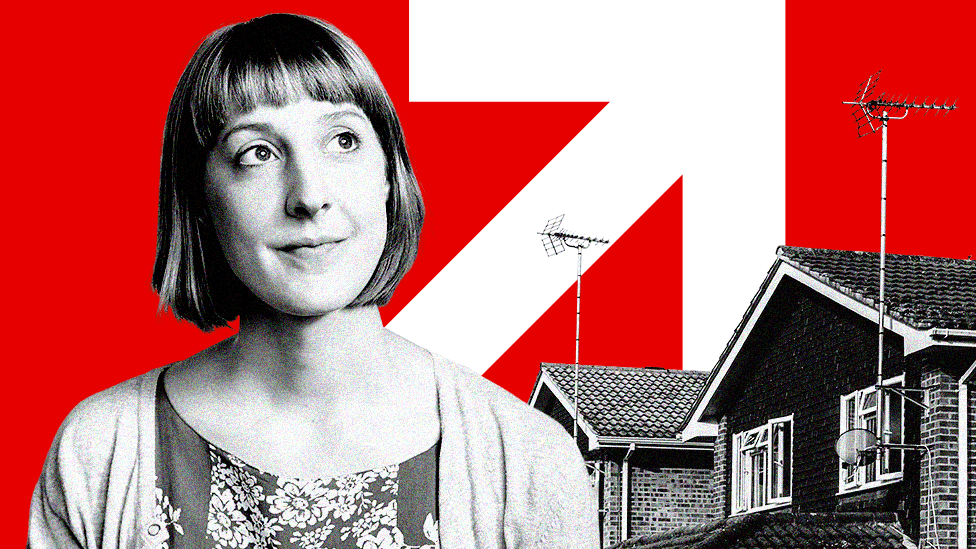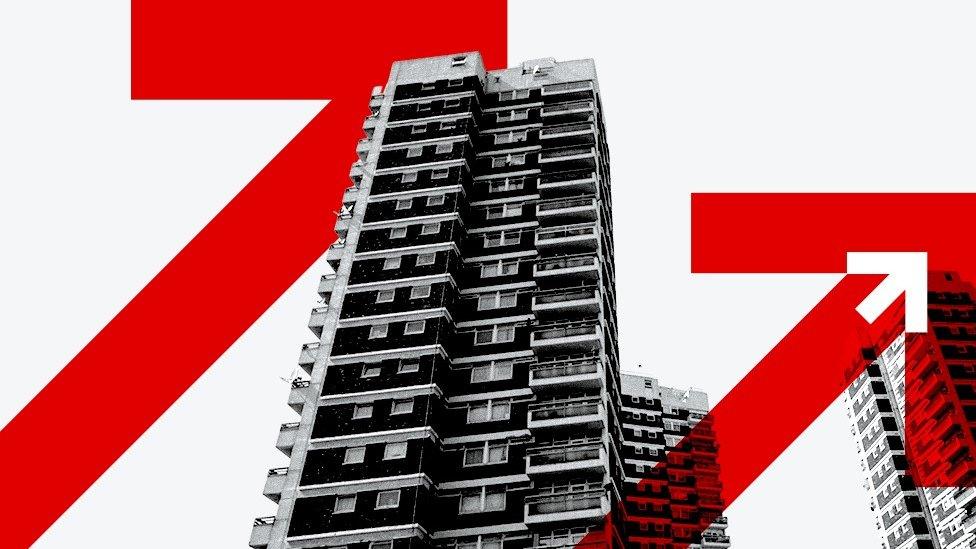Landlord mortgages in arrears double in a year
- Published
- comments

The number of landlords who have fallen behind on their mortgages has jumped, according to figures from the banking industry.
Buy-to-let mortgages in arrears more than doubled in the final three months of 2023 compared to the same period the year before.
The 124% rise was likely to be the result of high mortgage rates.
However, it still only accounts for a fraction of mortgages that are still being paid off.
UK Finance said there were 13,570 buy-to-let mortgages in arrears in the final quarter of last year. There are nearly two million mortgages being repaid by landlords in total.
These arrears - which are mostly of relatively low value - rose by 18% compared with the previous three months. But compared to the year before, the increase was more pronounced.
Graham Cox, a broker at the Self Employed Mortgage Hub, told Newspage: "The surge in interest rates has led to either unaffordable refinancing costs or more void periods due to higher rents.
"The situation is particularly bad in London for landlords and tenants alike."
Moves to repossess homes from landlords was at the highest level since the pandemic, UK Finance said.
Meera Chindooroy, from the National Residential Landlords Association, said more than eight in 10 of buy-to-let mortgages were on interest-only repayment terms, leaving them harder hit by rising mortgage rates.
"Faced with such challenges, many landlords are simply opting to leave the market altogether, exacerbating an already serious shortage of homes to rent," she said.

What is happening with your mortgage?
WhatsApp: +44 7756 165803, external
Tweet: @BBC_HaveYourSay, external
Please read our terms & conditions and privacy policy

The trade body also released figures on the number of homeowners who had fallen behind on their mortgages.
A total of 93,680 were in arrears, which was up 7% on the previous quarter and 25% up on the same period a year earlier.
When arrears become so serious with no likelihood of payments being made, then a lender may seek to repossess a home. These remain rare, but are rising, and lenders and charities urge people to act early when facing trouble.
Talking to a mortgage lender about payment difficulties has no impact on a borrower's credit score and their ability to borrow in the future, although missing payments or getting a mortgage holiday would have an impact.

What happens if I miss a mortgage payment?
If you miss two or more months' repayments you are officially in arrears
Your lender must then treat you fairly by considering any requests about changing how you pay, such as lower repayments for a short time
They might also allow you to extend the term of the mortgage or let you pay just the interest for a certain period
However, any arrangement will be reflected on your credit file, which could affect your ability to borrow money in the future

Related topics
- Published9 January 2024

- Published8 January 2024

- Published5 January 2024

